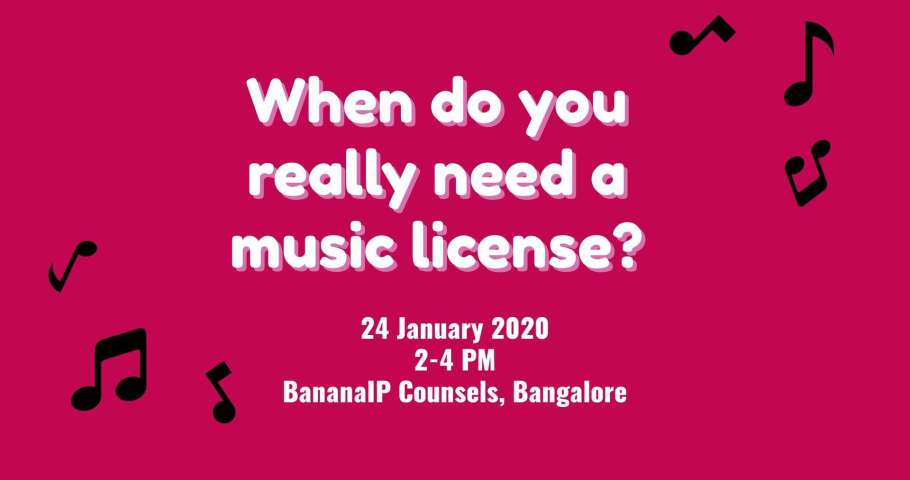BananaIP Counsels, through Intellepedia, is happy to announce a seminar titled “When Do You Really Need a Music License?”, an event for live performers, musicians, event organisers, and venue managers, on 24th January, 2020 at its office.
You may register online for the event here:
Register Online
Event Information
You do not always need a copyright license or permission for using recorded music, lyrics or musical compositions. While some uses require you to pay and get a license, many uses do not require…




